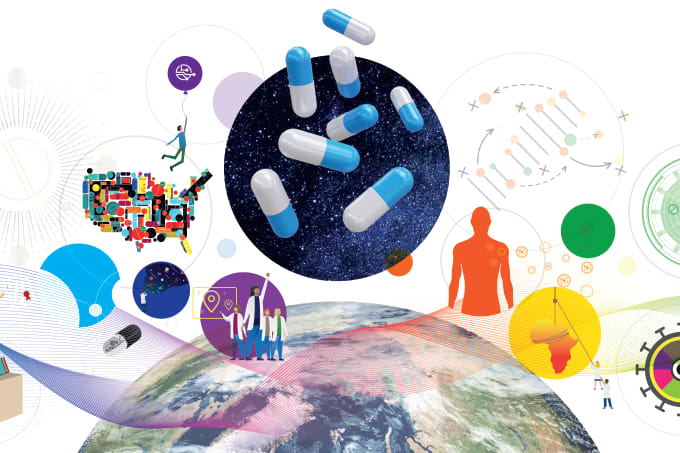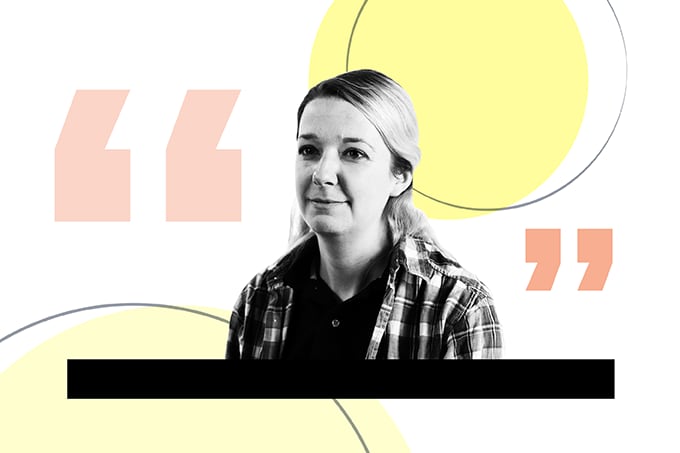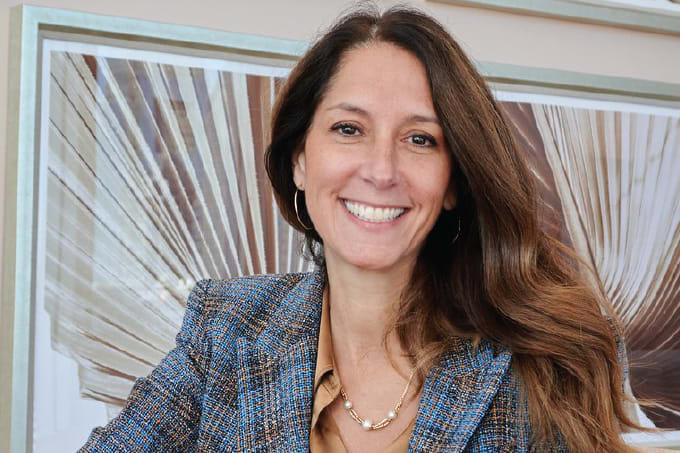
What drives your passion for developing therapies for hard-to-treat cancers?
It’s the unmet clinical need. Back when I was training in oncology, I saw firsthand how tough things were for patients. That stayed with me. Cancer is poised to become the world’s leading cause of death – it affects people of all ages and walks of life. The scale of the problem is what motivates me.
What inspired you to focus your research on CAR-T cell therapy, especially targeting solid tumors?
Originally, I thought I might pursue a career in medical oncology, but back when I started out, treatment largely revolved around high-dose chemotherapy, which was incredibly toxic. This really put me off, so I switched to immunology as a clinical specialty but remained passionate about cancer and the potential for the immune system to play a role in therapy.
In those days, immunotherapy wasn’t really a thing. It just didn’t work! But I was fascinated by the potential of T cells, which naturally recognize virus-infected cells. The idea of retraining them to identify and destroy cancer cells was compelling. This led me to CAR-T.
How did your experience at King’s College London influence the formation and direction of Leucid Bio?
A UK fellowship gave me the opportunity to join a lab in New York, led by Michel Sadelain, who was pioneering CAR-T development at the time. The 18 months I spent in Michel’s lab convinced me this was the direction I wanted to take my career.
After returning from New York, I established a CAR-T lab at Guy’s Hospital with a focus on treating solid tumors. As time passed, we started to see exciting clinical data showing how effective CAR-T could be in certain blood cancers. That momentum gave me the confidence to spin out a company from King’s – what is now Leucid Bio – with a focus on adapting CAR-T technology to treat solid tumors.
I had great support early on – particularly from Mike Garrison, who was then heading up the King’s Commercialization Institute, and Anthony Walker, who went on to become Leucid’s first CEO. Both were instrumental in helping me make the leap into biotech, a world I was completely unfamiliar with.
What are the main obstacles currently limiting the broader application of CAR-T therapies for solid tumors?
The challenges are numerous. First, there's the issue of target selection. With blood cancers, we can target molecules unique to a specific cell type. Even if we kill both malignant and healthy cells – like healthy B cells when treating B cell cancers – we can manage the side effects with, for instance, antibody replacement therapy. However, we can’t play those kinds of tricks with solid tumors.
Second, it’s a delivery problem. CAR-T cells can access blood cancers directly via the bloodstream, but to reach a solid tumor, they have to exit the bloodstream, penetrate organs, and identify tumor sites – an extremely difficult journey.
Third, and perhaps most intractable, is the tumor microenvironment. It is incredibly hostile. Anthony Walker once joked that solid tumors build a “Donald Trump-style wall” to keep the immune system out – and honestly, it’s a great analogy. Tumors recruit healthy cells, like fibroblasts and white blood cells, to build a protective barrier of cells and collagen that shields them from attack. Overcoming that is essential.
How important are partnerships and collaborations in advancing research and clinical trials?
They're absolutely critical, especially in translational research. I’ve benefited from many productive collaborations over the years. You can exchange ideas, share technologies – it accelerates progress for everyone involved.
There’s a saying: “If you want to go fast, go alone. If you want to go far, go together.” That’s the spirit of collaboration in this field.
How do you see CAR-T therapies being integrated into standard cancer treatment protocols?
We are already seeing this happen with blood cancers. Initially, CAR-T was used only in terminally ill patients as a last resort. But as the efficacy became clear, trials began exploring its use earlier in treatment. Now, CAR-T is being used earlier and earlier in the patient journey.
I believe we’ll see the same trajectory with solid tumors once we develop effective CAR-T therapies.
What advice would you give to young scientists looking to translate their research into clinical or commercial success?
I've made plenty of mistakes myself. One key piece of advice: be commercially aware from the start. Much of my early work wasn’t properly protected with patents. At the time, CAR-T wasn’t seen as commercially viable, and universities didn’t want to fund patent applications.
But if you believe in your technology, protecting it through patents is essential. Investors and pharma companies want exclusivity. So, be more commercially savvy than I was!
Reflecting on your career, which achievement are you most proud of?
I’d say it goes back to my time in Michel Sadelain’s lab. Before I joined, I read a paper by Helene Finney, who described what we now call a second-generation CAR – an artificial receptor built from different protein components. She showed it worked in a model cell line but didn’t have the tools to test it in real T cells.
Michel did have those tools. Using them, I recreated Helene’s receptor in human T cells and showed it worked just as well. That architecture – the second-generation CAR – is now used in all seven FDA-approved CAR-T therapies.
So we can count Helene and Michel among your biggest influences. Anyone else?
Funnily enough, I’ve never actually met Helene. I just know her work! But Michel was definitely a key mentor. And I must mention Farzin Farzaneh at King’s College London. He's been a tremendous supporter of my work in CAR-T.
Outside your professional life, what helps you stay balanced and inspired?
I’m an avid gardener. I love being in the garden, pottering around and growing things. Maybe that’s what drew me to cell therapy! I also enjoy walking and traveling. You’ve got to step away from the day job now and then. It’s essential for mental clarity.
If you could witness one breakthrough in medicine during your lifetime, what would it be?
Cancer immunotherapy is already a huge breakthrough. Not just CAR-T, but immune checkpoint inhibitors. Originally, antibodies targeted the cancer itself. Then someone had the idea to target the immune system instead – essentially taking the brakes off. This transformed the treatment of diseases like metastatic melanoma, where half of patients can now achieve long-term disease control. That’s my top pick for a transformative advance.




